Have you ever watched in horror as a poorly secured vessel drifted away from its moorings? It's a sight that sends shivers down any sailor's spine. The difference between a secure berth and a nautical nightmare often comes down to one crucial element: your marine mooring rope. But with a sea of options available, how do you navigate the choppy waters of choice to find the best mooring rope for your needs?
At iRopes, we understand that selecting the right marine mooring rope is more than just a purchase—it's an investment in your vessel's safety and your peace of mind. Whether you're looking for a double mooring pendant for added security or seeking the best mooring rope to withstand harsh coastal conditions, we've got you covered.
In this guide, we'll chart a course through the world of marine mooring ropes, exploring why polyester is the best all-round fibre for most applications and how nylon's additional elasticity can be a game-changer in certain situations. We'll also delve into the customisation options that can make your mooring solution as unique as your vessel.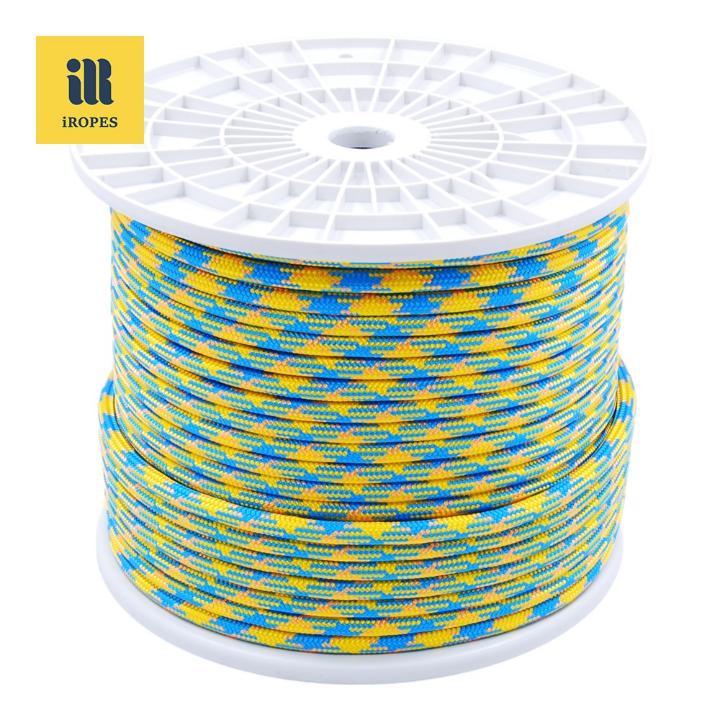
So, batten down the hatches and prepare to discover how the right mooring rope can transform your maritime experience. After all, in the world of boating, it's not just about staying afloat—it's about staying put when it matters most.
Understanding Marine Mooring Rope Types
When it comes to securing your vessel, choosing the right marine mooring rope is crucial for both safety and performance. As a seasoned sailor, I've learned that the type of rope you use can make all the difference between a peaceful night's sleep and a nerve-wracking experience on the water. Let's dive into the world of mooring ropes and explore the options available to you.
Main Categories of Mooring Ropes
There are three primary types of mooring ropes you'll encounter in the maritime world: chain, wire, and synthetic fiber. Each has its unique properties and applications:
- Chain: Ideal for heavy-duty applications and long-term moorings, chains offer unparalleled strength and durability.
- Wire: Provides a good balance of strength and flexibility, often used in commercial settings.
- Synthetic fiber: The most common choice for recreational boaters, offering a blend of strength, elasticity, and ease of handling.
As we focus on synthetic fiber ropes, it's important to understand that the material choice significantly impacts performance. Have you ever wondered why some ropes feel different or behave uniquely in various conditions?
Characteristics and Applications of Different Mooring Ropes
Let's take a closer look at the most popular synthetic materials used in marine mooring ropes:
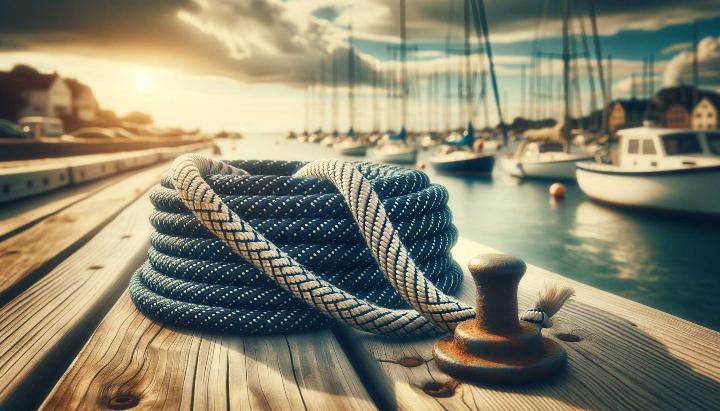
Polyester: As the best all-round fiber for mooring applications, polyester ropes offer excellent strength, low stretch, and good UV resistance. I've found polyester to be incredibly reliable in various weather conditions, making it my go-to choice for most mooring situations.
Nylon: With additional elasticity and the ability to develop a harder finish, nylon ropes are perfect for specific solutions. They excel in situations where you need a bit more give, such as in areas with significant tidal changes or choppy waters.
Polypropylene: While not as strong as polyester or nylon, polypropylene ropes are lightweight and float, making them useful for certain applications like temporary mooring or as part of a mooring system.
When selecting the right rope for your vessel, consider factors such as:
- Strength-to-weight ratio: Crucial for easy handling without compromising on holding power.
- Elasticity: Important for absorbing shock loads and reducing strain on cleats and bollards.
- UV resistance: Essential for longevity, especially if your boat is moored in sunny locations.
- Abrasion resistance: Vital for ropes that may come into contact with rough surfaces or experience frequent use.
One popular option that combines the benefits of different materials is the double mooring pendant. This setup typically uses a combination of chain and synthetic rope to provide both strength and elasticity.
Pro Tip: Always inspect your mooring ropes regularly for signs of wear or damage. Even the best rope can fail if not properly maintained!
Remember, the best mooring rope for your needs depends on various factors, including your vessel size, local environmental conditions, and specific mooring configuration. Don't hesitate to consult with marine experts or rope manufacturers like iRopes for personalized advice.
Have you had any experiences with different types of mooring ropes? I'd love to hear about your preferences and why they work well for your boat. Share your thoughts in the comments below!
Key Factors for Selecting the Best Mooring Rope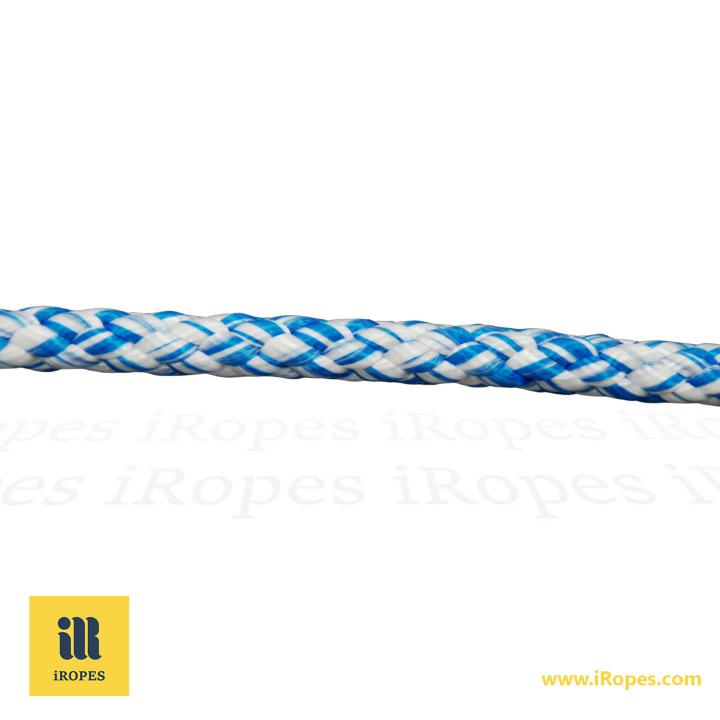
An allround high-tech control line that comes in various colors and diameters.
The colored UHMWPE core also makes it easily recognizable in
complex boat handling systems.
MATERIAL: Uhmwpe-Uhmpwe melange polyester
CONSTRUCT: 12 /12x1
ELONGATION: 4.8%
Choosing the right mooring rope isn't just about picking the strongest line you can find. As a seasoned sailor, I've learned that several crucial factors come into play when selecting the best mooring rope for your vessel. Let's dive into the key considerations that will help you make an informed decision and keep your boat safely secured.
Material and Strength Considerations
When it comes to mooring rope materials, not all fibres are created equal. I remember the first time I switched from a basic polypropylene rope to a high-quality polyester line - the difference was night and day!
- Polyester: My go-to choice for most mooring situations. It offers excellent UV resistance, low stretch, and great durability.
- Nylon: Perfect when you need a bit more give, especially in areas with significant tidal changes.
- Polypropylene: While not as strong, it's lightweight and floats, making it useful for temporary mooring solutions.
Remember, strength isn't just about the breaking point. A good rule of thumb is to choose a rope with a safety factor between 6 and 10 times your boat's weight. This ensures your mooring line can handle sudden stress without snapping.
Length, Diameter, and Flexibility
Have you ever struggled with a rope that's either too short or so thick it's a nightmare to handle? Getting the right length and diameter is crucial for both safety and convenience.
Pro Tip: For optimal mooring, your rope length should be at least 2.5 times the maximum depth of water in your mooring area.
Flexibility is another key factor. A rope that's too stiff can be challenging to tie and may not absorb shock loads effectively. On the flip side, an overly flexible rope might lack the necessary strength. Strike a balance between strength and flexibility for the best performance.
Environmental Factors and Durability
Your mooring rope faces constant exposure to the elements. UV rays, saltwater, and abrasion can quickly degrade a subpar rope. That's why considering environmental factors is crucial when selecting your mooring line.
- UV resistance: Essential for ropes exposed to direct sunlight. Polyester excels in this area.
- Water absorption: Look for ropes that don't retain water, as this can lead to degradation and reduced strength.
- Abrasion resistance: Crucial for areas where your rope might come into contact with rough surfaces.
Investing in a high-quality, durable rope might seem expensive initially, but trust me, it's worth every penny in the long run. I've seen countless boaters regret skimping on their mooring lines when faced with unexpected repairs or replacements.
Remember, the best mooring rope for your needs depends on your specific situation. Consider your vessel size, local weather conditions, and mooring configuration. Don't hesitate to consult with marine experts or manufacturers like iRopes for personalized advice.
What's been your experience with different mooring ropes? Have you found a particular material or brand that works best for your boat? Share your thoughts in the comments below - I'd love to hear about your experiences!
Customization Options for Marine Mooring Rope
When it comes to marine mooring ropes, one size certainly doesn't fit all. As a seasoned sailor, I've learned that customization is key to ensuring your vessel is securely moored in any condition. Let's explore the world of personalized mooring solutions and how they can enhance your boating experience.
Types of Marine Mooring Ropes
Before we dive into customization, it's essential to understand the three main types of mooring ropes:
- Chain: Ideal for shallow waters and long-term mooring, offering unmatched durability.
- Wire: Perfect for larger vessels, providing a balance of strength and flexibility.
- Synthetic fiber: The most versatile option, popular among recreational boaters for its ease of handling and customization potential.
While all three types can be customized to some extent, synthetic fiber ropes offer the most flexibility in terms of personalization. That's why we'll focus on these for the rest of our discussion.
Personalization and Custom Features
Now, let's talk about the exciting part - making your mooring rope truly your own. Here are some key customization options to consider:
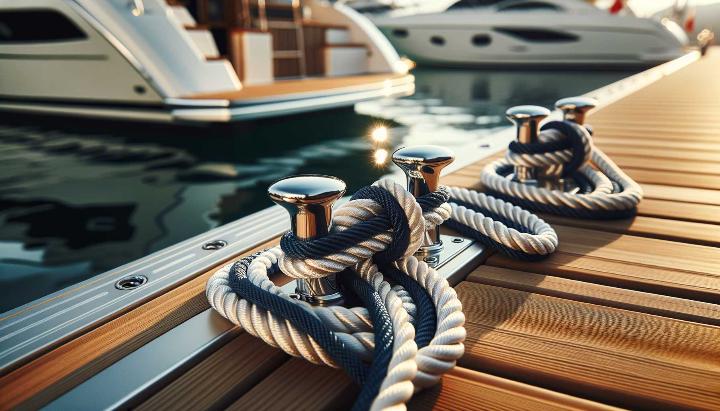
- Colour and pattern choices: Gone are the days of plain white ropes. You can now choose from a rainbow of colours or even opt for patterns. I once saw a boat with a mooring rope that matched its hull colour - it looked fantastic and was easy to spot!
- Length and diameter: Tailoring these to your specific needs ensures optimal performance. Remember, a rope that's too long can be a hassle, while one that's too short is downright dangerous.
- Splicing and termination options: Custom splices and end terminations can make installation a breeze and enhance the rope's durability.
- Personalized labeling: Adding your boat's name or registration number to the rope isn't just a neat touch - it can be incredibly useful in marinas and busy harbours.
Selecting the Right Mooring Rope Material
When it comes to synthetic fibers, three materials stand out:
- Polyester: The all-rounder, offering excellent strength and UV resistance. Why Choose 10mm Polyester Rope?
- Nylon: Known for its elasticity, perfect for areas with significant tidal changes. Discover more about 18mm Nylon Rope for Marine Use.
- Polypropylene: Lightweight and buoyant, ideal for temporary mooring solutions.
Choosing the right material depends on your specific needs. For instance, I use a polyester rope for my primary mooring line due to its all-round performance, but I keep a nylon spring line handy for those choppy days when I need a bit more give.
Pro Tip: Consider a double mooring pendant for added security. This setup combines the strength of chain with the elasticity of synthetic rope, providing the best of both worlds.
Remember, the best custom mooring solution for you depends on various factors including your vessel size, local weather conditions, and mooring configuration. Don't hesitate to consult with experts like those at iRopes who can guide you through the customization process and ensure you get the perfect marine mooring rope for your needs.
Have you customized your mooring rope before? What features did you find most useful? Share your experiences in the comments below - I'd love to hear about your custom mooring solutions!
Partnering with iRopes for Your Marine Mooring Rope Needs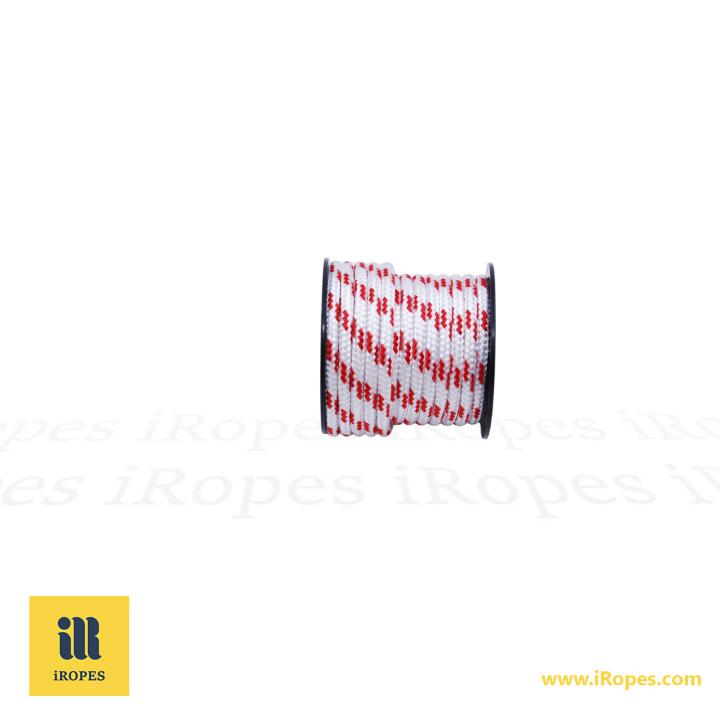
When it comes to securing your vessel, choosing the right partner for your marine mooring rope needs is just as crucial as selecting the rope itself. As someone who's spent years on the water, I can't stress enough how important it is to work with experts who understand the intricacies of mooring systems. That's where iRopes comes in - a company that's been my go-to for all things mooring-related.
Expertise in Manufacturing High-Quality Marine Mooring Rope
iRopes isn't just another rope manufacturer; they're craftsmen who understand the sea. Their expertise in creating top-notch marine mooring ropes is evident in every product they produce. I remember the first time I handled one of their polyester ropes - the strength and quality were immediately apparent, even before putting it to the test in choppy waters.
- State-of-the-art manufacturing: Using cutting-edge technology to ensure consistency and durability in every rope.
- Rigorous quality control: Each rope undergoes thorough testing to meet and exceed industry standards.
- Innovative materials: Incorporating advanced fibers like Dyneema for superior performance in challenging conditions.
Comprehensive Consultation and Customization Services
What sets iRopes apart is their commitment to finding the perfect solution for each customer. Their consultation process is thorough, ensuring that you get a mooring rope tailored to your specific needs.
Pro Tip: Take advantage of iRopes' expert advice on the 3/2/2 mooring arrangement - it's a game-changer for vessel stability in various conditions!
During my last consultation with them, we discussed everything from my vessel's size to the specific environmental challenges of my mooring location. This level of personalization ensures you're not just getting a rope, but a complete mooring solution.
Competitive Pricing and Timely Delivery
Quality doesn't always have to come at a premium price. iRopes offers competitive pricing without compromising on the quality of their products. Their efficient manufacturing process and global supply chain management mean you get top-tier mooring ropes at reasonable prices.
But what good is a great product if it doesn't arrive when you need it? iRopes understands the importance of timely delivery in the marine industry. Their commitment to punctual order fulfillment means you won't be left high and dry (or should I say, low and wet?) when it's time to moor your vessel.
Exceptional Customer Support and After-Sales Service
In my years of dealing with marine suppliers, I've learned that after-sales support can be just as important as the product itself. iRopes shines in this area, offering:
- Ongoing technical support: Have a question about your mooring setup? Their team is just a call away.
- Maintenance advice: Regular tips and guidance to extend the life of your mooring ropes.
- Warranty support: Peace of mind with comprehensive warranty coverage on all their products.
I once had a concern about the wear on my mooring line after a particularly stormy season. The iRopes team not only addressed my concerns promptly but also provided valuable advice on how to protect my rope from future wear and tear.
Choosing the right marine mooring rope is crucial for your vessel's safety and your peace of mind. By partnering with iRopes, you're not just buying a product; you're investing in expertise, quality, and ongoing support. Whether you're looking for a standard mooring solution or need a custom setup for challenging conditions, iRopes has the knowledge and products to keep your vessel secure.
Have you worked with specialized mooring rope suppliers before? What was your experience like? Share your thoughts in the comments below - I'd love to hear how it compares to the personalized service offered by companies like iRopes!
Find Your Ideal Marine Mooring Rope Today!
Choosing the best marine mooring rope is essential for safely securing your vessel. Options like double mooring pendant provide strong, durable solutions, while polyester ropes stand out as the best all-rounder. Nylon's additional elasticity and harder finish are tailored for specific conditions. iRopes offers comprehensive customisation, ensuring you get the optimal rope for your needs. Consider your vessel size, environmental conditions, and necessary custom features to make an informed decision. Fill in the form above to get expert advice and quality marine mooring rope from iRopes!